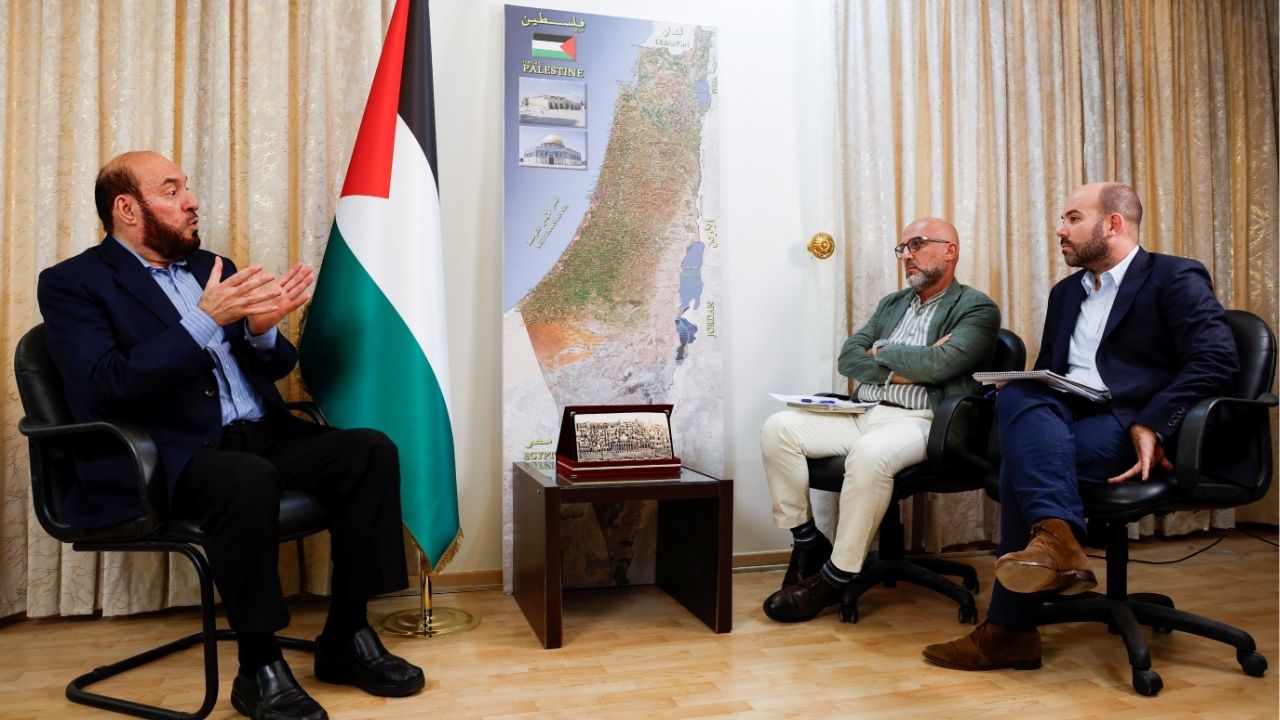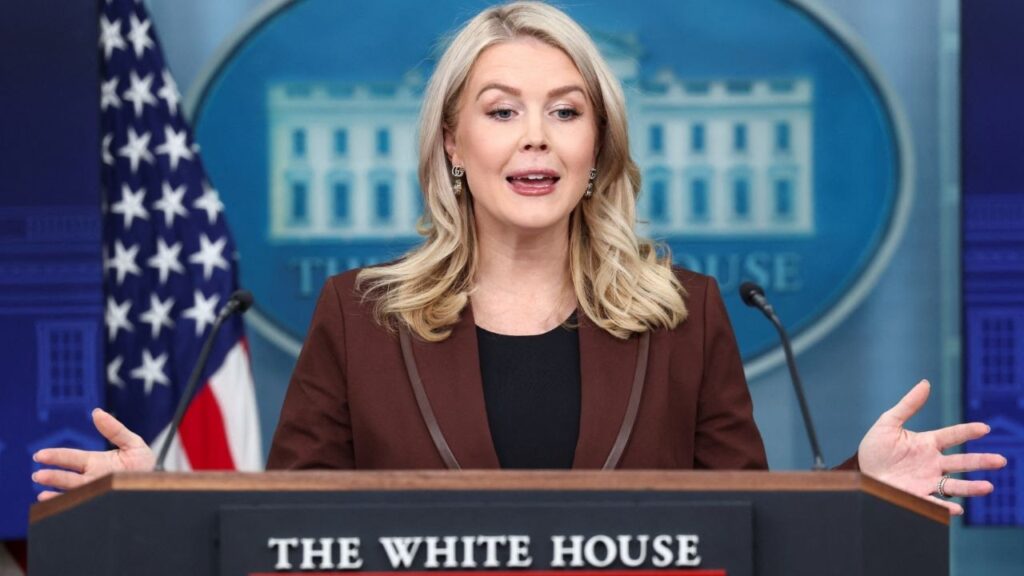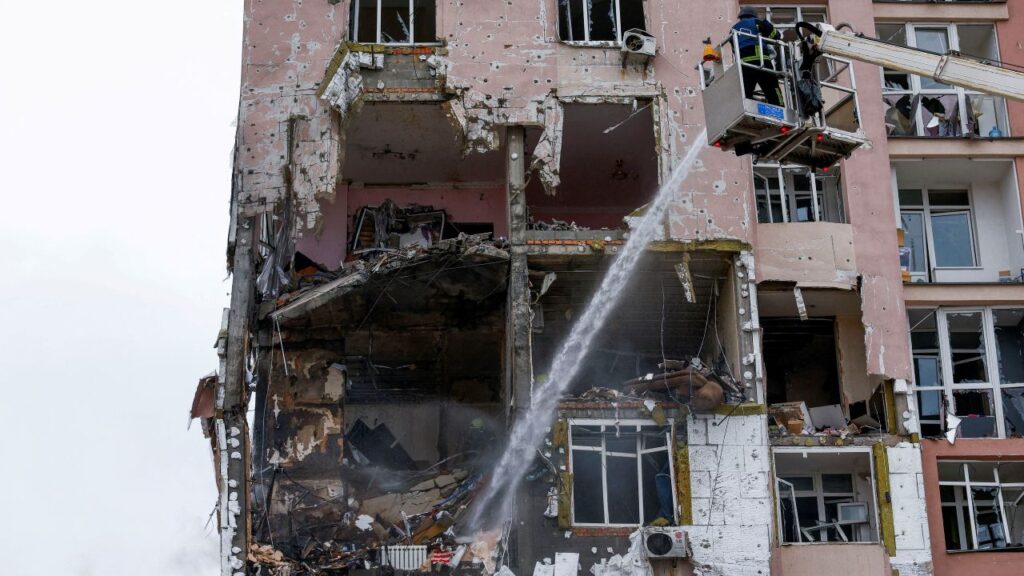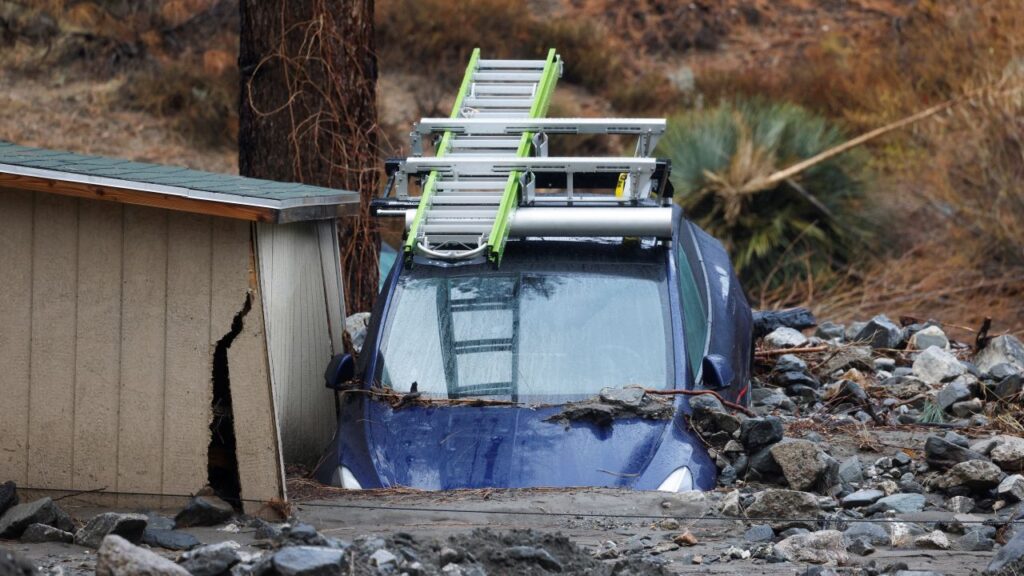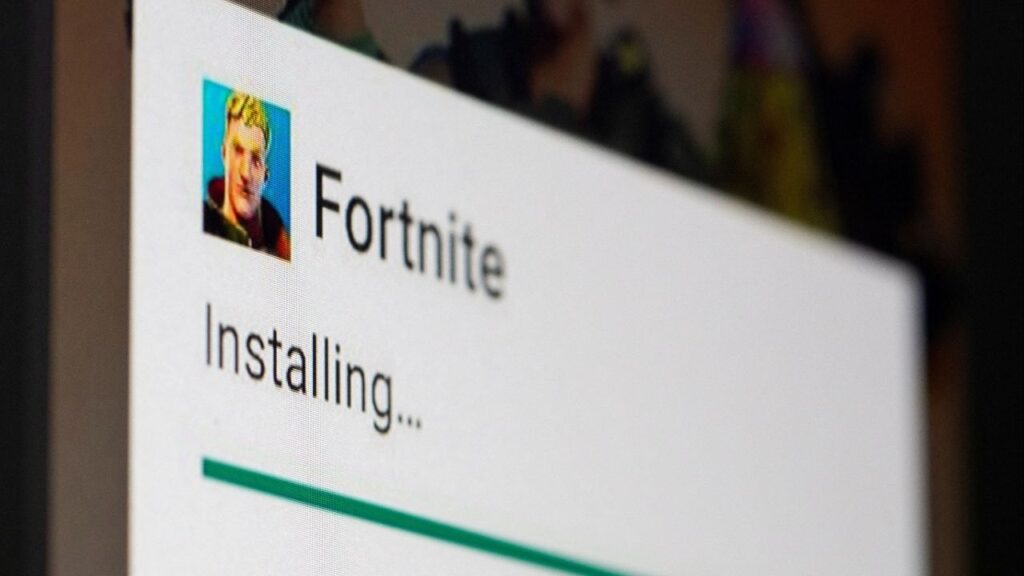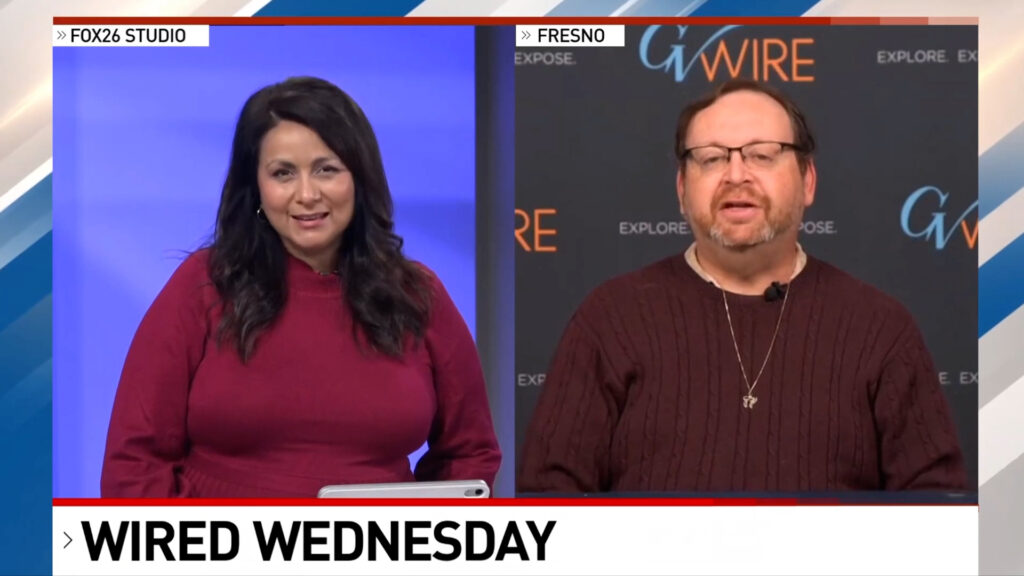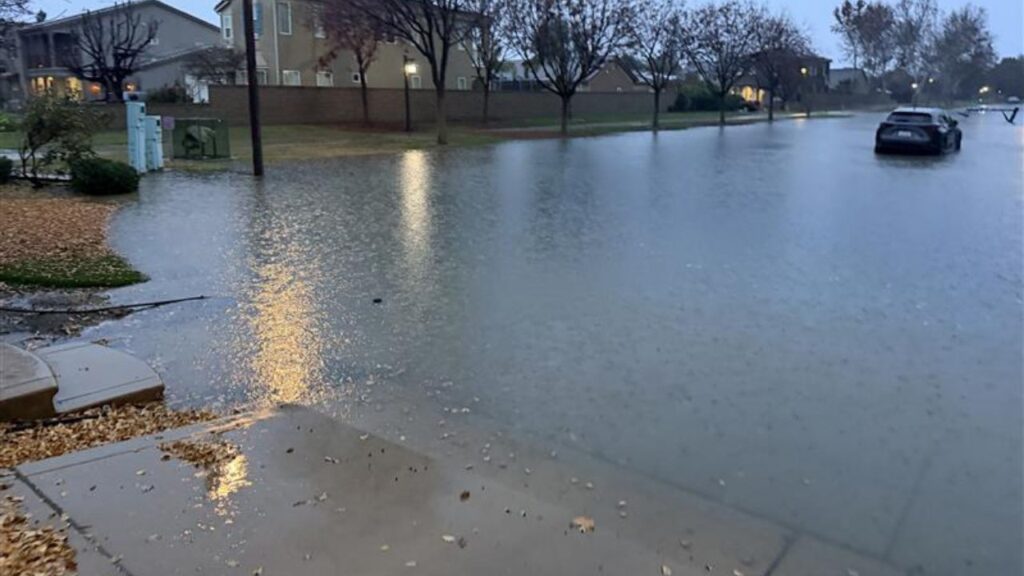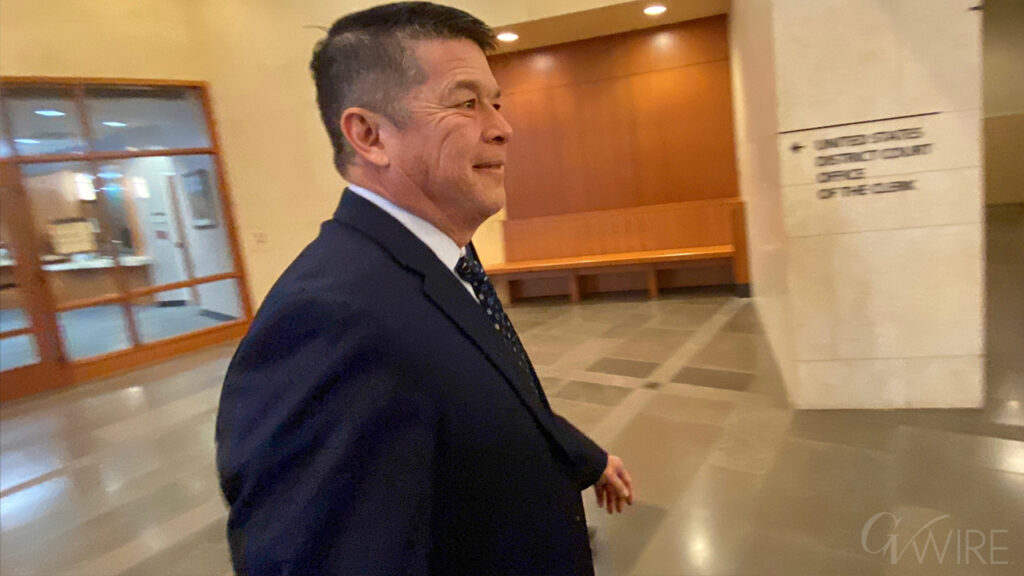Hamas senior official Mohammed Nazzal speaks during an interview with Reuters, in Doha, Qatar, October 15, 2025. (Reuters/Ibraheem Abu Mustafa)

- Hamas said it intends to keep security control in Gaza during the interim period and won’t commit to disarming.
- The stance highlights major gaps between Hamas and Trump’s ceasefire plan, which requires disarmament and new governance.
- Hamas offered a 3–5 year truce to rebuild Gaza, saying Palestinians need “horizons and hope” for future statehood.
Share
|
Getting your Trinity Audio player ready...
|
DOHA — Hamas intends to maintain security control in Gaza during an interim period, a senior Hamas official told Reuters, adding he could not commit to the group disarming – positions that reflect the difficulties facing U.S. plans to secure an end to the war.
Hamas politburo member Mohammed Nazzal also said the group was ready for a ceasefire of up to five years to rebuild devastated Gaza, with guarantees for what happens afterwards depending on Palestinians being given “horizons and hope” for statehood.
Speaking to Reuters in an interview from Doha, where Hamas politicians have long resided, Nazzal defended the group’s crackdown in Gaza, where it carried out public executions on Monday. There were always “exceptional measures” during war and those executed were criminals guilty of killing, he said.
Pressure to Disarm
While Hamas has broadly expressed these views before, the timing of Nazzal’s comments demonstrates the major obstacles obstructing efforts to cement a full end to the war in Gaza, days after the first phase of the ceasefire was agreed.
They point to big gaps between Hamas’ positions and U.S. President Donald Trump’s plan for Gaza, ahead of negotiations expected to address Hamas’ weapons and how Gaza is governed.
Asked for comment on Nazzal’s remarks, the Israeli prime minister’s office said Israel was committed to the ceasefire agreement and continued to uphold and fulfil its side of the plan.
“Hamas is supposed to release all hostages in stage 1. It has not. Hamas knows where the bodies of our hostages are. Hamas are to be disarmed under this agreement. No ifs, no buts. They have not. Hamas need to adhere to the 20-point plan. They are running out of time,” it said in a statement to Reuters.
Trump’s September 29 plan called for Hamas to immediately return all hostages before committing to disarmament and ceding governance of Gaza to a technocratic committee overseen by an international transitional body.
Israeli Prime Minister Benjamin Netanyahu supported the plan, saying it would dismantle Hamas’ military capabilities, end its political rule, and ensure that Gaza would never again pose a threat to Israel.
Hamas-led militants killed 1,200 people and abducted another 251 during the October 7 attacks on Israel that triggered the war, according to Israeli tallies. Israel’s military response killed nearly 68,000 people in Gaza, according to local authorities.
Pummelled by Israel in the war, the Palestinian Islamist group is under intense pressure to disarm and surrender control of Gaza or risk a resumption of the conflict.
Asked if Hamas would give up its arms, Nazzal, speaking on Wednesday, said: “I can’t answer with a yes or no. Frankly, it depends on the nature of the project. The disarmament project you’re talking about, what does it mean? To whom will the weapons be handed over?”
He added that issues to be discussed in the next phase of negotiations, including weapons, concerned not only Hamas but other armed Palestinian groups, and would require Palestinians more broadly to reach a position.
Asked for its response to Nazzal’s remarks, the White House directed Reuters to comments by Trump on Thursday.
“We have a commitment from them and I assume they’re going to honour their commitment,” Trump said, noting that Hamas had returned more bodies but without elaborating on the issue of it disarming or its interim presence on the ground.
Nazzal also said the group had no interest in keeping the remaining bodies of deceased hostages seized in the October 7, 2023 attacks.
Hamas has handed over at least nine out of 28 bodies. It was encountering technical problems recovering more, he said, adding that international parties such as Turkey or the U.S. would help search if needed.
A senior Turkish official said last week that Turkey would take part in a joint task force along with Israel, the U.S., Qatar and Egypt to locate the bodies.
Hamas agreed on October 4 to release the hostages and hand over governance to a technocratic committee, but said other matters needed to be addressed within a wider Palestinian framework. It released all living hostages on Monday.
Nazzal said the phase two negotiations would begin soon.
Goals of Elections, ‘Hope’ for Palestinians
On Tuesday, Trump said he had communicated to Hamas that it must disarm or it would be forced to. Trump has also suggested Hamas was given temporary approval for internal security operations in Gaza, and has endorsed Hamas killing members of gangs.
Noting Trump’s remarks, Nazzal said there was an understanding regarding Hamas’ presence on the ground, without specifying among whom, indicating it was necessary to protect aid trucks from thieves and armed gangs.
“This is a transitional phase. Civilly, there will be a technocratic administration as I said. On the ground, Hamas will be present,” he said. After the transitional phase, there should be elections, he said.
Nazzal said mediators had not discussed with the group an international stabilization force for Gaza, which was proposed in Trump’s ceasefire plan.
Hamas’ founding charter called for the destruction of Israel, although the group’s leaders have at times offered a long-term truce with Israel in return for a viable Palestinian state on all Palestinian territory occupied by Israel in the 1967 war.
Israel regards this position as a ruse.
Nazzal said Hamas had suggested a long-term truce in meetings with U.S. officials, and wanted a truce of at least three to five years to rebuild the Gaza Strip. “The goal isn’t to prepare for a future war.”
Beyond that period, guarantees for the future would require states to “provide horizons and hope for the Palestinian people”, he said.
“The Palestinian people want an independent Palestinian state,” he added.
—
(Additional reporting by Imad Creidi in Doha; Writing by Tom Perry and Angus McDowall; Editing by Aidan Lewis)


